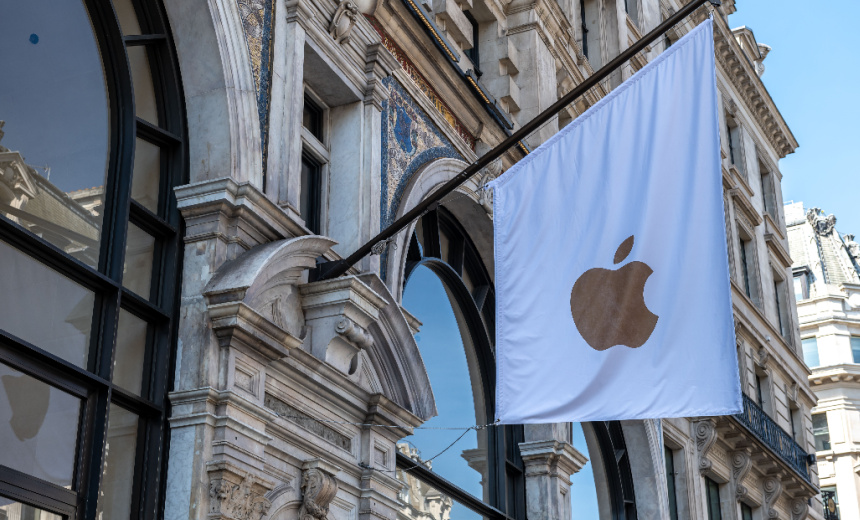Data Privacy
,
Data Security
,
Encryption & Key Management
Apple, US Took Hard Line Against British Demand
Akshaya Asokan (asokan_akshaya) •
July 23, 2025

Apple’s logo on a flag above its Regent Street store in London. (Image: Yau Ming Low/Shutterstock)
The U.K. government is reportedly set to reverse course on requiring smartphone giant Apple to give police access to device data stored as backups in the California company’s cloud service.
See Also: On Demand | From Patch to Prevention: Modernizing Remediation Across Hybrid Environments
Citing unidentified officials, the Financial Times reported Monday that the U.K. government will consider retreating from its January invocation of a 2016 law requiring tech companies to provide law enforcement with unencrypted copies of customer data. Apple in response deactivated in the United Kingdom optional end-to-end encryption for iPhone backups stored in the iCloud, a feature the Apple company calls Advanced Data Protection (see: Apple Withdraws Strong Encryption Feature for All UK Users).
Following reports of the order, U.S. Vice President JD Vance criticized the move as an impairment to free speech during British Prime Minister Keir Starmer’s February visit to Washington. Some congressmen raised similar concerns, calling the British order a “dangerous attack on U.S. cybersecurity.”
“This is something that the vice president is very annoyed about and which needs to be resolved,” an unidentified U.K. official told the Financial Times. “The Home Office is basically going to have to back down.” The Home Office did not respond to a request for comment.
The Investigatory Powers Act 2016 empowers the U.K. government to issue Technical Capability Notices to telecommunication companies to remove any electronic protections on user data. After the U.K. government’s request, Apple lodged a complaint with the Investigatory Powers Tribunal, which oversees government surveillance activities. Instant messaging app WhatsApp last month expressed its interest in joining the case (see: WhatsApp Backs Apple Over Encryption Fight With UK).
The U.K. government’s willingness to backtrack comes amid escalating trade tensions between Washington and European governments. The U.K. government earlier delayed plans to regulate artificial intelligence over concerns the move would jeopardize trade relations with Washington, which has been critical of European tech regulation (see: US VP Vance Calls for Less Regulation at AI Action Summit).
Itxaso Dominguez, policy advisor at European Digital Rights, said the British government could also be worried about European reaction. The European Union is reviewing the U.K.’s status as a trusted host of trading bloc commercial and law enforcement data. The value of what the Europe dubs an “adequacy agreement” allowing easy passage of data across the English Channel is significant to both economies. The European Commission published a draft decision renewing the U.K.’s adequacy status but the measure faces additional scrutiny from European institutions before it could become final.
“The drafts don’t explicitly mention backdoors or Apple, but they do reaffirm that strong technical and organizational safeguards like end-to-end encryption are essential,” Dominguez said. “Mandating backdoors would undermine these safeguards. It would also raise red flags under EU law.”
EDRi was among the privacy rights groups that called on the European Commission to rescind granting adequacy status to the U.K. over privacy concerns with British government policies, which they argued diverged from the “core principles of necessity and proportionality enshrined in EU law.”
The British government’s decision to withdraw its case against Apple does not mean it will stop targeting encryption, said Jim Killock, executive director at Open Rights Group.
“The U.K.’s attack on encryption is not over, even if they try to back down in this case,” Killock said.
